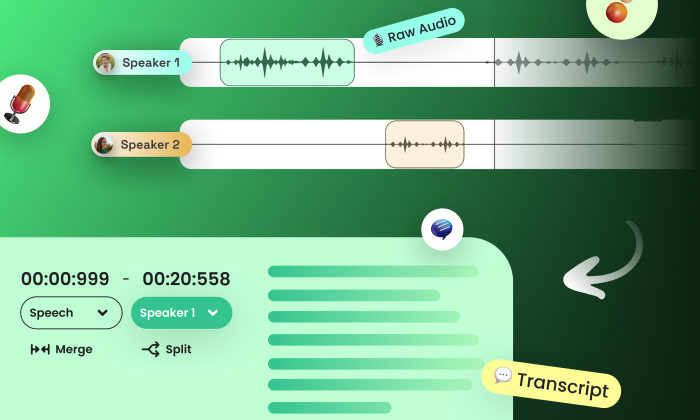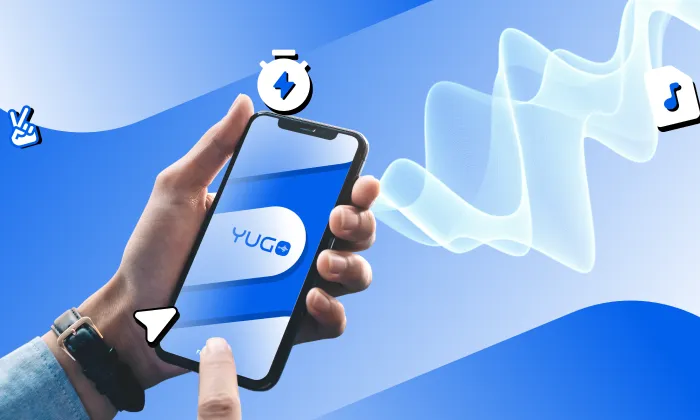Can LLMs trained on doctor–patient data summarize clinical notes automatically?
LLM
Healthcare
Clinical AI
The potential of large language models (LLMs) to revolutionize healthcare documentation is a promising technology, particularly when it comes to summarizing clinical notes. By training these models on datasets that capture the intricacies of doctor-patient interactions, such as the Doctor–Patient Conversation Speech Dataset, LLMs can generate concise, accurate summaries of medical conversations. This capability significantly enhances clinical workflows and ensures effective communication of critical patient information among healthcare providers.
How LLMs Drive Clinical Note Summarization
LLMs are designed to understand and generate human-like text by learning patterns from extensive training data. When a dataset like the Doctor–Patient Conversation Speech Dataset is used, which simulates realistic clinical interactions, these models can be trained to recognize key elements and contexts essential for summarizing clinical notes.
The Importance of Summarizing Clinical Notes
Summarizing clinical notes is crucial for several reasons:
- Efficiency: It frees healthcare professionals from time-consuming documentation tasks, allowing them to concentrate more on patient care.
- Consistency: Automated summaries ensure uniformity, reducing variability that may arise from individual clinician styles.
- Accuracy: Leveraging structured, realistic datasets allows LLMs to capture critical medical details, leading to more reliable summaries.
Steps in Summarizing Clinical Notes
- Data Ingestion: LLMs are trained on diverse datasets that reflect authentic doctor-patient dialogues, ensuring a broad understanding of clinical language across various specialties.
- Contextual Understanding: The model learns to identify key medical phrases, terminologies, and emotional tones, crucial for summarizing discussions about diagnoses, treatment plans, and patient concerns.
- Summarization Techniques: Use of extractive summarization to select key sentences, or abstractive summarization to generate new sentences that encapsulate main ideas. The technique used depends on the specific application and desired summary detail.
- Quality Control: Human oversight ensures the generated summaries meet clinical standards for accuracy and completeness.
Critical Considerations for Effective Implementation
Implementing LLMs for summarization involves several considerations:
- Dataset Quality: The performance of the model heavily depends on the quality of training data. High-quality, ethically sourced datasets are crucial for generating reliable outputs.
- Model Complexity: Balancing performance with resource availability is key. More complex models may provide better results but require more resources and time for training.
- Interpretability: It's important that summaries are not only accurate but also transparent, allowing healthcare professionals to understand how conclusions are reached.
Real-World Implications
The integration of LLMs in clinical settings offers tangible benefits:
- Improved Patient Outcomes: By ensuring accurate and timely documentation, LLMs can enhance patient care and safety.
- Reduced Administrative Burdens: Automating documentation tasks alleviates the workload on healthcare staff, enabling more focus on direct patient interactions.
- Enhanced Collaborative Care: Consistent summaries improve communication among clinicians, fostering better collaborative care.
Common Challenges in Summarization
- Understanding Complex Jargon: Medical language can be complex. LLMs must be capable of accurately interpreting and summarizing intricate medical terminologies.
- Context Loss: Summarization tasks may lead to the loss of critical context, which can be mitigated by continuous training and updates to the models.
To Conclude
LLMs trained on doctor-patient data hold the potential to streamline the process of clinical note summarization significantly. By leveraging high-quality datasets that replicate authentic clinical interactions while adhering to ethical standards, these models can improve the efficiency and accuracy of healthcare documentation. FutureBeeAI's expertise in data collection and annotation empowers AI systems to deliver these benefits, enhancing both patient and provider experiences in healthcare settings.
Smart FAQs
Q. Are LLMs effective in summarizing all types of medical conversations?
LLMs can be trained across various medical specialties, but their effectiveness may vary with the complexity of the dialogue. Continuous training on diverse datasets enhances their performance across different medical contexts.
Q. How can data privacy be ensured during LLM training?
Using simulated doctor-patient conversations avoids the risks of real patient data exposure. Ensuring anonymization of identifiers and adherence to regulatory standards like HIPAA and GDPR are crucial for maintaining data privacy.
What Else Do People Ask?
Related AI Articles
Browse Matching Datasets
Acquiring high-quality AI datasets has never been easier!!!
Get in touch with our AI data expert now!




-data-collection/thumbnails/card-thumbnail/top-resources-to-gather-speech-data-for-speech-recognition-model-building.webp)



